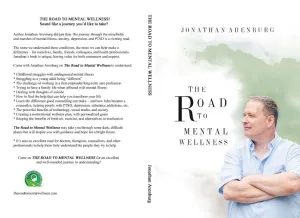In part two of my series Why are we mentally ill? I discuss why I believe there is a rise in mental-health conditions in children. How can we fix our kids’ mental well-being?
Tweet
First off, I want to preface this by saying this: one of the reasons we may be seeing an uptake in mental-health concerns in children could be because of better-educated adults. Teachers and parents have gotten better at seeing “problem children” differently. For example, when I was growing up, the adults in the room saw “problem children” and determined them to be delinquent and thus the appropriate thing to do was use punishment. But were they actually bad kids? Maybe there was more going on just below the surface…?
Today, it’s better. We are starting to look past what our eyes are telling us. Because of this, we are getting better at understanding that behaviour always happens for a reason. Therefore, what we are seeing is an increase in diagnoses as a result. If this is true, then it’s reasonable to assume that the numbers of children being diagnosed are a reflection of this.
But is this the only reason our kids’ mental well-being is suffering?
While I’m certain that the above is true, I am not convinced that this is the only reason we are seeing an increase. So, if this isn’t the only reason, why then are we seeing a rise in mental-health conditions amongst our youth?
In part one, I talked a bit about how a lot of our children appear to be spending more time with people we don’t even know and way less time with us, their parents. A good example of this is daycare providers. For many, this scenario is disproportionate, unbalanced and frankly, unfair. For those who haven’t read part one; you can go here: Our mental well-being.
So then, why do we do this? Because we in many cases are forced to. While this is reality for many families, other parents believe that working hard and longer hours to give their children everything they want is the right thing to do. Whatever the reasons, our children are missing out on the one thing they want most – time with their folks. This is especially true when they are young.
What role does our “work comes first” mentality play in our kids’ mental well-being?
Simply stated, because parents work so much, children don’t get to experience the connection and cohesion of the family unit as a whole. This is especially important in their formative years. Our time with them, or lack thereof, can make or break them mentally.
Of course, this is not true of every child; however, the data suggests that mental-health conditions in children and teens are on the rise. Sadly, our culture has put the priority on bankable hours and less so on the psycho-emotional needs of our young people. I suspect that, because of this, that those numbers will only grow.
Here are some questions worth asking
- Working too much: when we are not at work, we are taking calls about work or answering work emails. This leaves our children with what for guidance and normal social development? Is having eight days off out of thirty-one really good for our families’ collective well-being?
- Our own addiction to our devices. What impacts does tech have on our kids’ mental well-being? If we commit to a day with our children, what does that mean? Does it mean we get to scroll through social media while they run around at the park? Furthermore, how do our children feel about it?
- Introducing them to tech. Is this good for our children’s mental well-being? If we are wired for human connection, how does unplugging from said connection affect them psychologically, socially, and most importantly, can we build the parent-child relationship our children need?
- Furthermore, do we need to continue a society where strangers raise our children? Where good parents are denied custody of their children in court? Where we place higher value on plastic and microchips?
- Last but not least: will working longer and harder for things they want, help or hinder their development? What does a focus on materialism do to their mental health? Does it cause an increase in behaviour issues, depression etc.?
Here’s a question for ya: if our kids are glued to tablets, TVs and smartphones, who’s raising them? Scary to think about this – but what are they learning? Perhaps the best question to ask is, what are they not learning?
Family connection and children’s mental health.
From my perspective, we are creating an ever-widening gap between the sacred bond between parent and child. We all know, on the surface at least, that parents are at the helm of child development, yet our future leaders are seemingly being pushed to the back of the line.
And as if our modern-day societal structures weren’t bad enough, kids still have to compete with domestic duties like bill-paying and housework.
On the house-cleaning front, kids may be being subjected to some people’s definition of “clean.” Some people have higher standards in this regard. Could our demand for a totally clean house also be impacting our kids’ mental well-being? After all, these things take time, time we already don’t have.
The no, wait and not right now phenomenon
Child: “Dad, can you play outside with me?”
Dad: “No, not right now honey, sorry, I have to do the dishes. Maybe later.”
Child: “Mom, can you play cards with me?”
Mom: “I’m sorry, I am busy, sweetheart; I’m answering work emails. Later, though, okay?”
What psychological effects do the No, wait and not right now phenomenon have on children’s mental well-being? In my view, when the “maybe later” and “after a bit”s never come, that’s when it’s most hurtful.
Another important question is: what is our busy lifestyle doing to children who have a <a aria-label="undefined (opens in a new tab)" href="http:// ![]() ” target=”_blank” rel=”noreferrer noopener”>predisposition for mental illness? In modern times, we are unintentionally isolating our little ones by giving them devices, constantly, getting them to wait or telling them “not right now” and “here’s my phone”… “go sit down.” What sort of impact is this having?
” target=”_blank” rel=”noreferrer noopener”>predisposition for mental illness? In modern times, we are unintentionally isolating our little ones by giving them devices, constantly, getting them to wait or telling them “not right now” and “here’s my phone”… “go sit down.” What sort of impact is this having?

The potential for exacerbating depression is high in these incidences of isolation; isolation is synonymous with an increased risk of depression.
Moreover, we are leaving them with devices that are linked to higher rates of depression in children. In my view, this is a very dangerous and precarious position to leave a child in, a little lone one with a predisposition for a mental health condition like depression. Please read the study below.
Smartphones increase the risk of depression in children and teens.
My takeaway? Our kids need us to re-establish connection with them. Make time; go on hikes together, establish a game night, get active and get involved. One of the best ways I have found to do this is through one-on-one time. Personally, I treat my own kids like I would my friends or coworkers, i.e., I would never yell at a person on the job and I do my best not do that to my kids.
We need to do better at establishing rapport and communication skills. But above all, we must understand that we are our children’s teachers, their moral guides and the people they look to, to find balance and security in their lives. If we as a society continue to sidestep our responsibilities to our cherished children, our kids’ mental well-being will continue to deteriorate. It’s time to fix this.
To-do list
- Work
- Clean house, wash car, play video games, stare at my phone. (Put kids in front of the TV)
- Answer work emails, calls, and texts on my days off. (Tell kids to wait).
- Get the kids to their 5 different activities during the week.
- Partake in my own hobby. (Give kid my iPhone.)
- Pay bills, do everyone’s laundry, cut the grass. (Distract the kids with tech).
- Get together with friends.
- Spend “quality time” with children. (Scroll through social media).
If you are struggling, please go here for help: Crisis Services Canada
OR
Checkout our Mental Health Resources Page
Follow us



Please leave a comment and tell us what you liked about what you read.